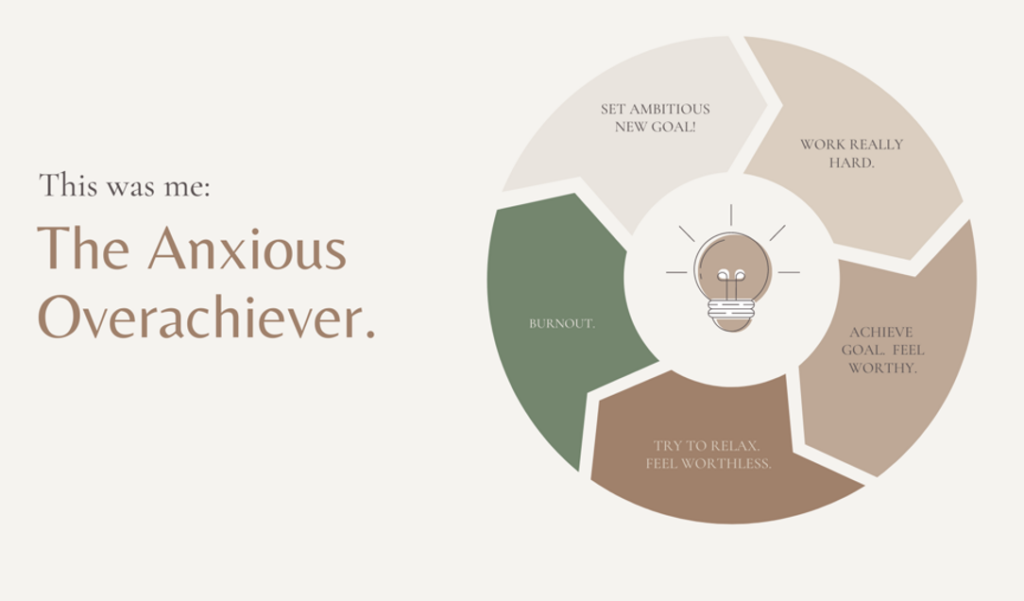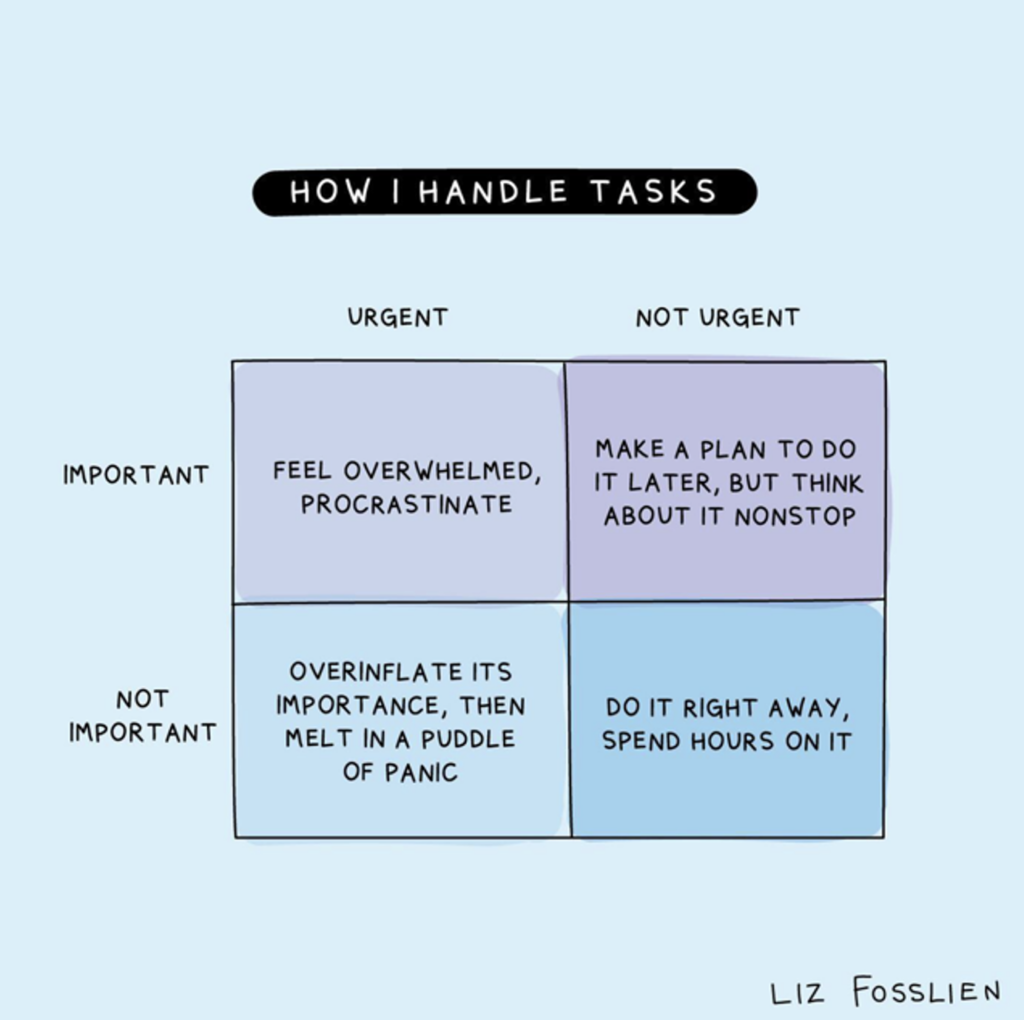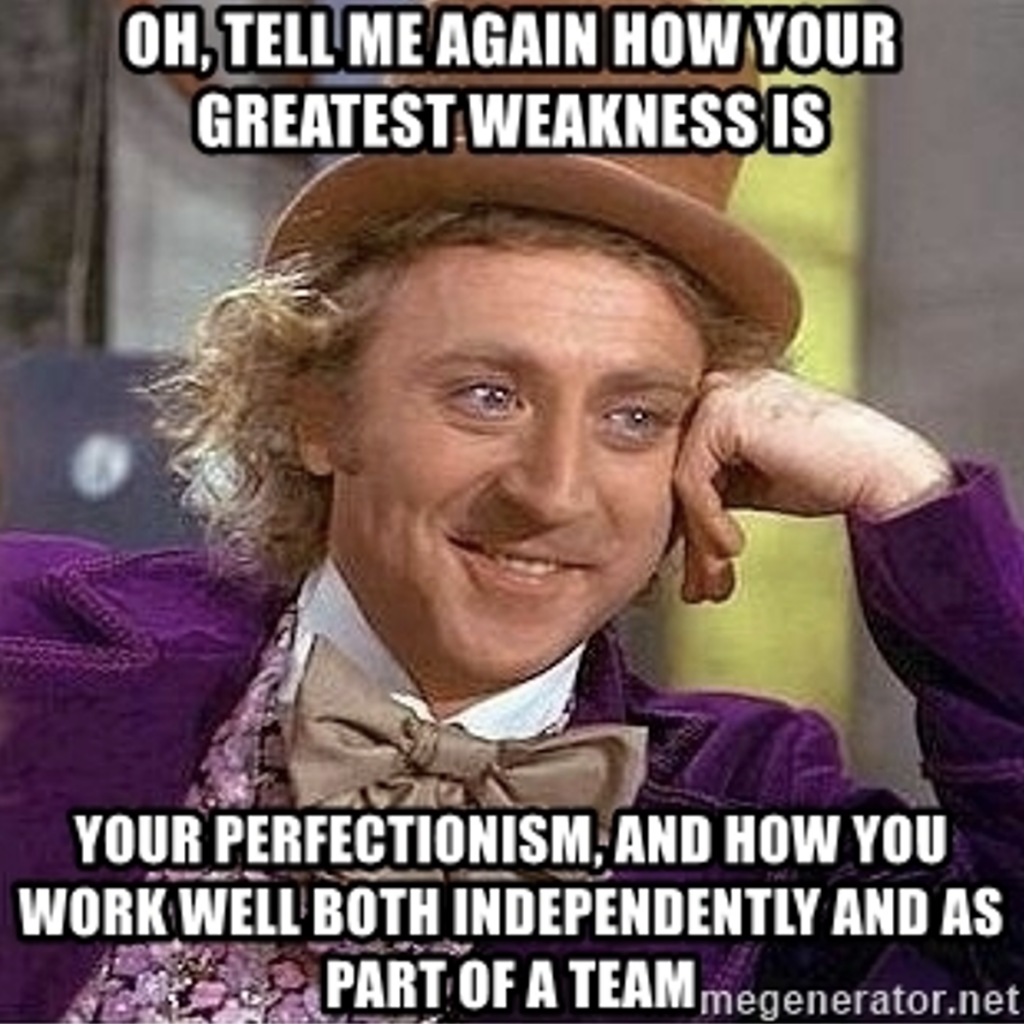Breaking Free from Perfection: A Guide for High Achievers
Scenario: You have a big, high-stakes presentation in two weeks in front of your boss and all the Sr. Leaders at the company. You:
A: Start working on the presentation right away and have a plan for exactly what you need to accomplish each day over the next two weeks to keep everything on track and high-quality.
You go, you high-achiever, you! Striving for excellence is about healthy achievement and growth. (Not the same as perfectionism). Just, be weary of that turning into “The Anxious Over-Achiever”, where you end up in burn-out city, and move straight to the next thing. Be sure to take the proper time to rest and celebrate your wins in a way that feels good to you.

B: Avoid starting at all costs. You work best under pressure, and will start working on this two days before it’s due, after you’ve done enough “research”
That procrastination – it’s actually linked to perfectionism. Or Fear of starting. Fear of feeling discomfort (anxiety, frustration, boredom) about doing a task – so we avoid it in order to avoid discomfort. Perfectionists may struggle with procrastination often, because anticipation of that discomfort is amplified when we have so much pressure about needing to do it perfectly. When we fear maybe not getting it right in the first try.
If you’re not following @LizandMolly on Instagram or LinkedIn, you should be. They have the best simple illustrations that explain how we’re all actually feeling in real life and add a bit of humor and positivity. I saw this post the other day, and it spoke to me:

C: Work on the presentation day and night, pixel-pushing your way through PowerPoint to make sure everything is PERFECT. You get so nervous about what everyone is going to think, get highly critical of everything you put out, keeping your standards extremely because it can never be good enough.
This is classic perfectionism here. Your work is centered more about perception than internal motivation. There is no way to control someone elses perception, no matter how much time and energy is spent trying. Brene Brown says, “Perfectionism is a self-destructive and addictive belief system that fuels this primary thought: If I look perfect and do everything perfectly, I can avoid or minimize the painful feelings of blame, judgement, and shame.”

Did I hit a nerve here? I had always been taught that perfectionism is an admirable trait. Or at least one to humble brag about…

Perfectionism creeps its way into my life over and over again, and I have a hunch I’m not the only one it effects. It was ESPECIALLY prevalent early in my career, and I wish back then I understood more about what was actually happening in my mind and body. The judgement against myself was debilitating, but once I understood that, I was able to look at it differently and use it to my advantage.
TRY IT YOURSELF
Now that we know perfectionism is actually NOT as helpful as we’ve all been led to believe…. What can we do?
- Steps to Manage your Self-Criticism:
- Become Aware: Many perfectionists often view their tendencies to achieve as beneficial, rather than realizing they’re in a race they’ll never win. Start to become aware of the signs of perfectionism. Here are a few:
- Difficulty making decisions
- Seeking reassurance
- Avoidance and procrastination
- All or nothing thinking
- Self-Confidence depends on accomplishments
- Defensiveness
- Hoarding Information
- Question the thoughts: When you notice these thoughts in yourself, begin to challenge them, and come up with some alternatives
- Align: Bring your behavior in line with the alternative thoughts by being kind, accepting, and compassionate with yourself.
- Become Aware: Many perfectionists often view their tendencies to achieve as beneficial, rather than realizing they’re in a race they’ll never win. Start to become aware of the signs of perfectionism. Here are a few:
- Focus on your strengths Often times, perfectionists focus on what they’re not great at. If you haven’t already taken the Gallup Strengths Finder, take the assessment and uncover what you are already innately good at, and focus on that.
- Reframe Mistakes: Ever make a HUGE mistake at the office and vow to yourself “I will never make THAT mistake again….” When we make mistakes we learn from them. They make us better at our craft. When we focus on the learning, instead of wallowing in the mistake itself, we can form new neural pathways that can help us learn faster in the future.
FURTHER EXPRLORATION
Watch This: Ted talk by Thomas Curran who explains how “our dangerous obsession with perfectionism is getting worse” He talks about how “the pressure to be perfect — in our social media feeds, in school, at work — is driving a rise in mental illness, especially among young people. Learn more about the causes of this phenomenon and how we can create a culture that celebrates the joys of imperfection.”
Read Brene Brown brought so much light to the research on perfectionism with her her book “The Gifts of IMPERFECTION: Let Go of Who You Think You’re Supposed to Be and Embrace Who You Are” Way to flip the concept on it’s head. Highly Recommended, whether perfectionism is something you struggle with or not.
Get academic: The authors of this 2019 study defined 3 different types of perfectionism: self-oriented, socially-prescribed, and other-oriented perfectionism.
“Self-oriented perfectionism is defined as attaching irrational importance to being perfect, having unrealistic expectations of one’s self, and holding punitive self-evaluations. Socially-prescribed perfectionism exists when individuals believe that their social context is excessively demanding, others judge them harshly, and that they must be perfect to get approval from others. Lastly, other-oriented perfectionism happens when individuals impose unrealistic standards on those around them and evaluate them critically.”
This tid-bit helped me to see with different eyes what I was experiencing, and when we understand then we can learn to overcome.
I’ll end with another little gem from @LizandMolly: “Perfectionism doesn’t make you feel perfect. It makes you feel inadequate.
It’s okay to slow down, or to not get to every single item on your to-do list. You are still enough, because you are still you. ❤️”
Until next week, stay intentional about what you pay attention to.

June 16, 2023
Be the first to comment